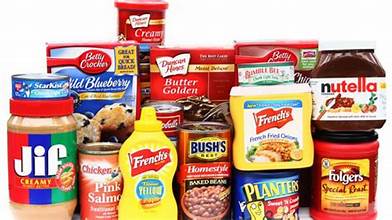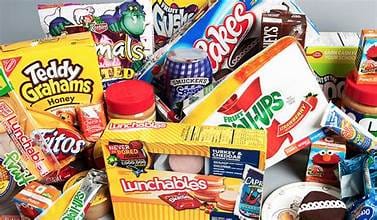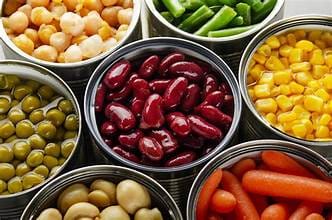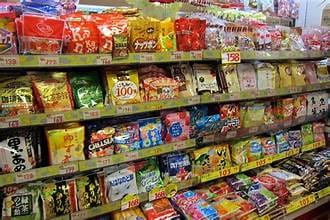
How much human meddling in the food we eat? Are we becoming ultra-processed people?
It is true industrial food is everywhere; most people would rather spend their time on the Internet than preparing their next dinner.
What exactly are processed foods, and are they really all that bad for you? Processed food starts early in the morning with breakfast, cereals, energy boosters, donuts, Danish pastries, and the like. Add some modified proteins, modified carbohydrates (pea starch, rice, and grain flours, maize starch, despise,) industrial oils (coconuts, grape seeds, and emulsifiers.)
What we deem good and bad is complex beyond our restrained knowledge about how our body functions. Besides, capitalism figures out how and where to push the envelope for gratification of super gains.

Is sugar cane refinement also a processed food? Yap…, it is.
One could wonder how convenient the fact is that we humans have an incline for junk food addiction. Edward St Aubyn’s portrait of addiction in his Patrick Melrose novels is not the substance we like but the substances we hate and can’t resist. The addiction can be like a cat curling up around your neck. It is soft, warm, and comforting when the rest of the world disappears in a cloud of dust. Eating is more of an individual gratification, an identity…, a necessity as well. No one else will take my food away…, processed or not. There is that element of innocent pleasure in eating. Food is essential to our existence; we accept the possibility that some of the things we like to eat may not be the best for our longevity. But is there a logical point in dying in good health?
China under Mao was ravaged by large-scale famines that cost the lives of perhaps thirty million people and cannot be blamed on planetary capitalism.
On the other hand, Americans, with their plentitude of food and everything, show diseases of substance.

It’s best not to understand how our daily food arrives on our plate, from markets with colorful labels promoting health and everything bio. It’s all good and makes us feel like we are doing something right. We read the label, ignored a few technical names that have to do with preservation of the holly food we will ingurgite with satisfaction. We save time and re right into the pleasure of great food. The colors, the floors are all chemicals, so be it. No one lives forever.
According to the Department of Agriculture, processed food is any raw agricultural commodities that have been washed, cleaned, milled, cut, chopped, heated, pasteurized, blanched, cooked, canned, frozen, dried, dehydrated, mixed or packaged — anything done to them that alters their natural state. This may include adding preservatives, flavors, nutrients, and other food additives or substances approved for use in food products, such as salt, sugars, and fats.
Rank processed foods:
- Minimally processed foods, such as fresh blueberries, cut vegetables, and roasted nuts, are simply prepped for convenience.
- Foods processed at their peak to lock in nutritional quality and freshness include canned tomatoes or tuna and frozen fruit or vegetables.
- Foods with ingredients added for flavor and texture, such as sweeteners, spices, oils, colors, and preservatives, include jarred pasta sauce, salad dressing, yogurt, and cake mixes.
- Ready-to-eat foods, such as crackers, chips, and deli meat, are more heavily processed.
- The most heavily processed foods often are frozen or premade meals, including frozen pizza and microwaveable dinners.
Reducing Processed Foods in Your Diet
Even if you wanted to, it would be very difficult to remove all heavily processed foods from your diet. That would mean not eating out at most restaurants and skipping that hot dog at the family BBQ. However, there are quite a few things to be done to reduce the amount of processed food you consume:

- Check the label. The longer the ingredient list, the more processed a food is. If most of the ingredients are hard-to-pronounce chemicals instead of actual food, it’s a safe bet that food is heavily processed.
- Shop the outside aisles at the grocery store. The center aisles of most grocery stores are full of packaged items and ready-made foods that are heavily processed. Aim to buy more foods from the produce and dairy aisles.
- Opt for minimally processed meats. Choose meats that have been minimally processed (e.g., seafood, chicken breast) while avoiding heavily processed meats (e.g., sausage, cured meats like bacon).
- Start slowly. It’s okay to slowly replace processed foods in your diet with more fresh foods. In fact, it may make you more likely to stick to these changes long-term.
- Cook more meals at home. You might not always be in control of your diet while traveling, but you are at home. Make your own frozen meals by cooking a larger batch and freezing the leftovers, or whip up your own salad dressing.
While many aspects of our health can be complicated, eating less processed food doesn’t have to be. When in doubt, just start with real food.

